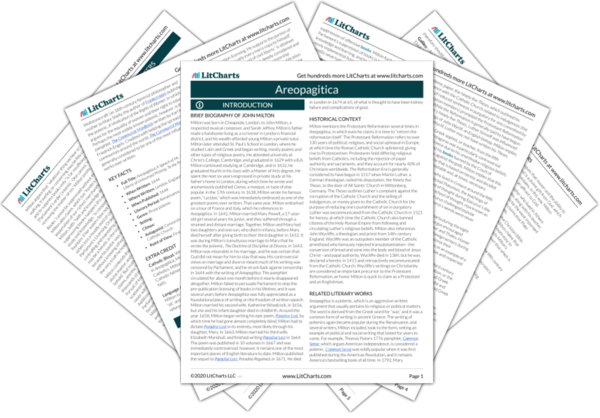Prelate Quotes in Areopagitica
By judging over again that order which ye have ordained to regulate printing: ‘That no book, pamphlet, or paper shall be henceforth printed, unless the same be first approved and licensed by such’, or at least one of such as shall be thereto appointed. For that part which preserves justly every man’s copy to himself, or provides for the poor, I touch not, only wish they be not made pretences to abuse and persecute honest and painful men, who offend not in either of these particulars. But that other clause of licensing books, which we thought had died with his brother ‘quadragesimal’ and ‘matrimonial’ when the prelates expired, I shall now attend with such a homily, as shall lay before ye, first the inventors of it to be those whom ye will be loath to own; […].

Unlock explanations and citation info for this and every other Areopagitica quote.
Plus so much more...
Get LitCharts A+









